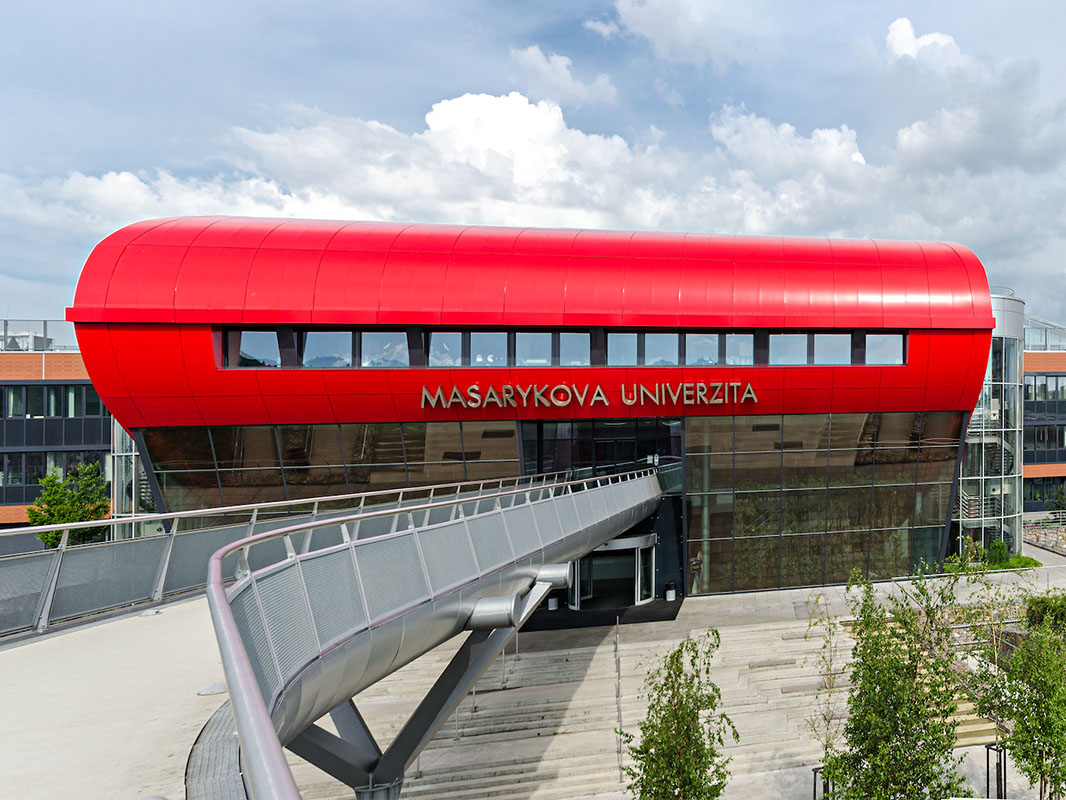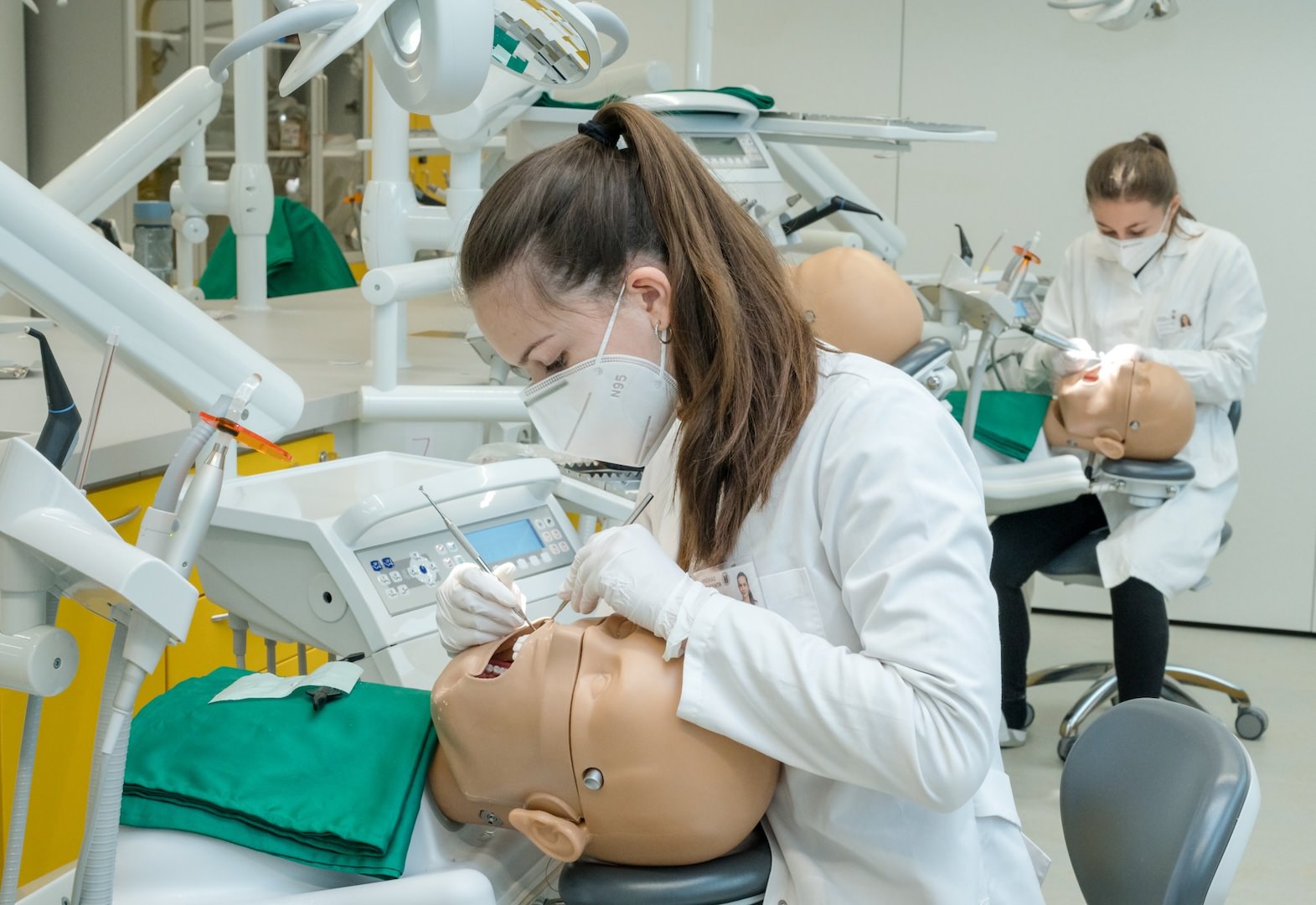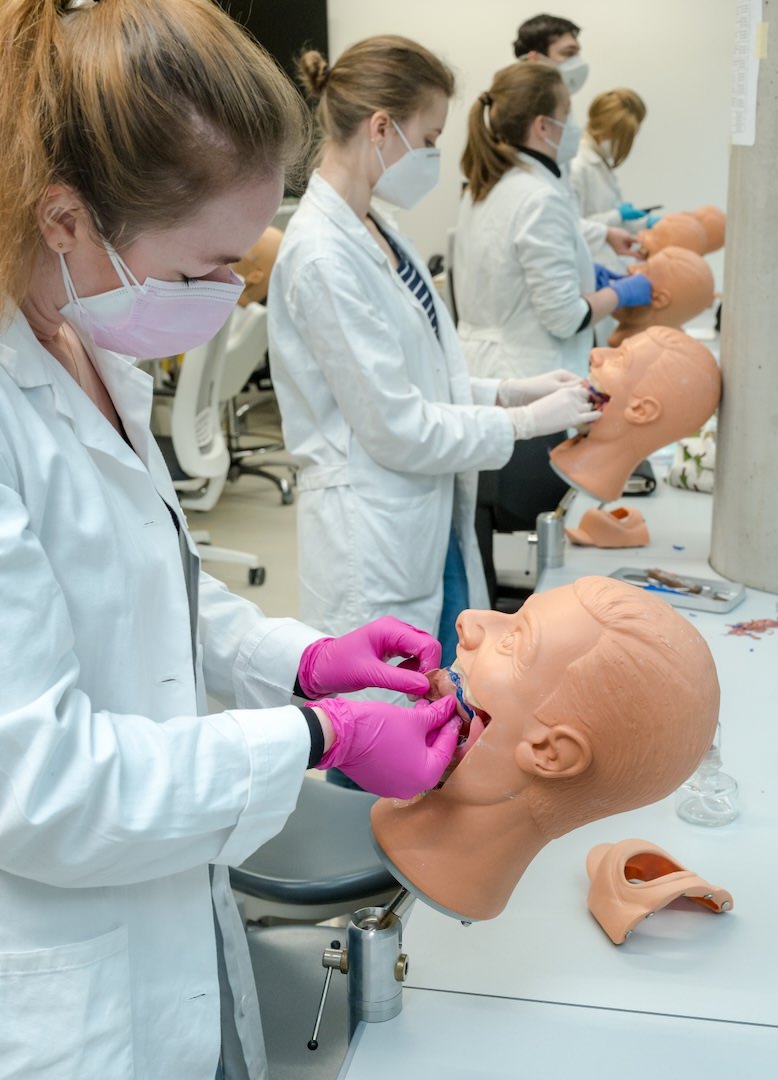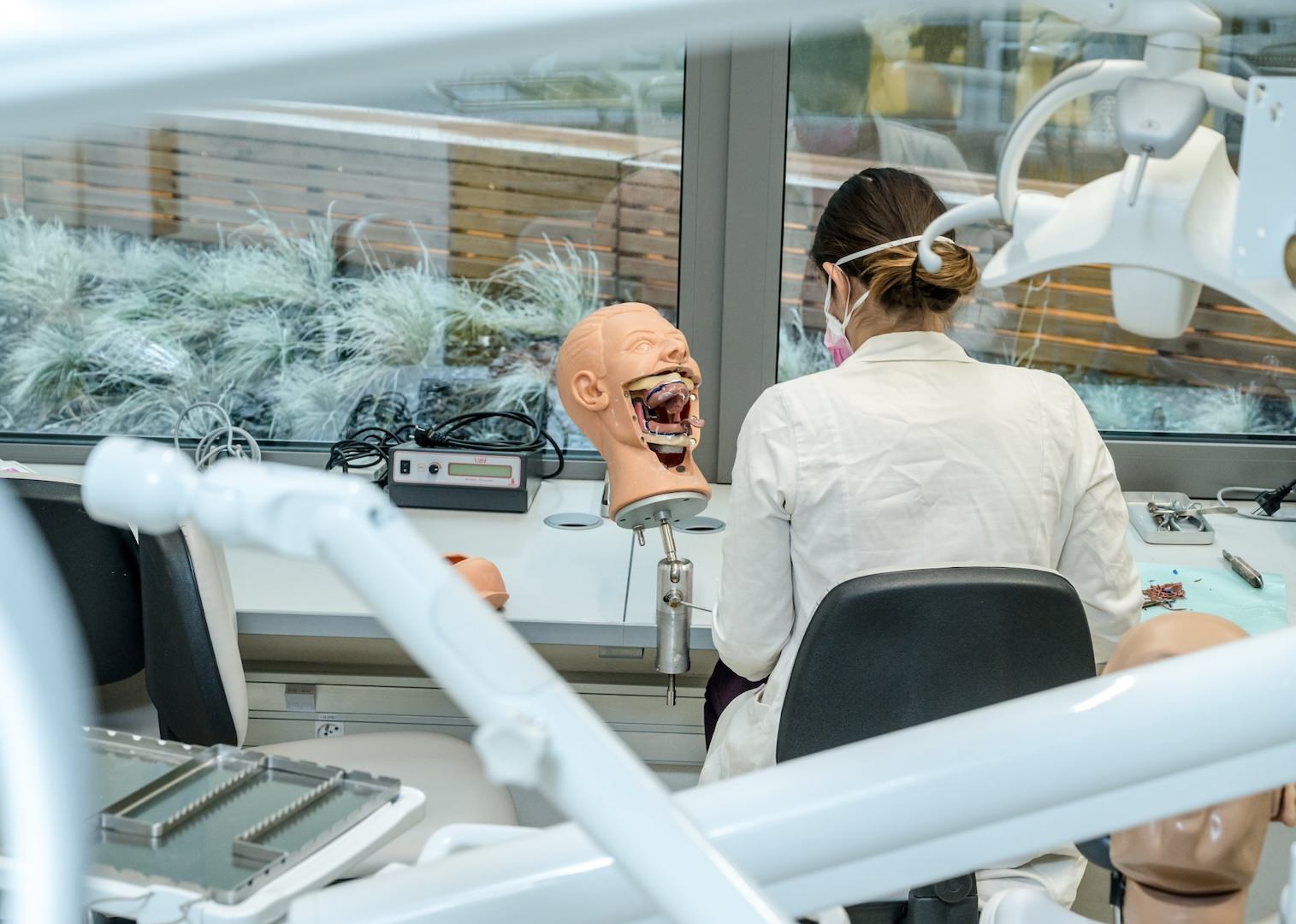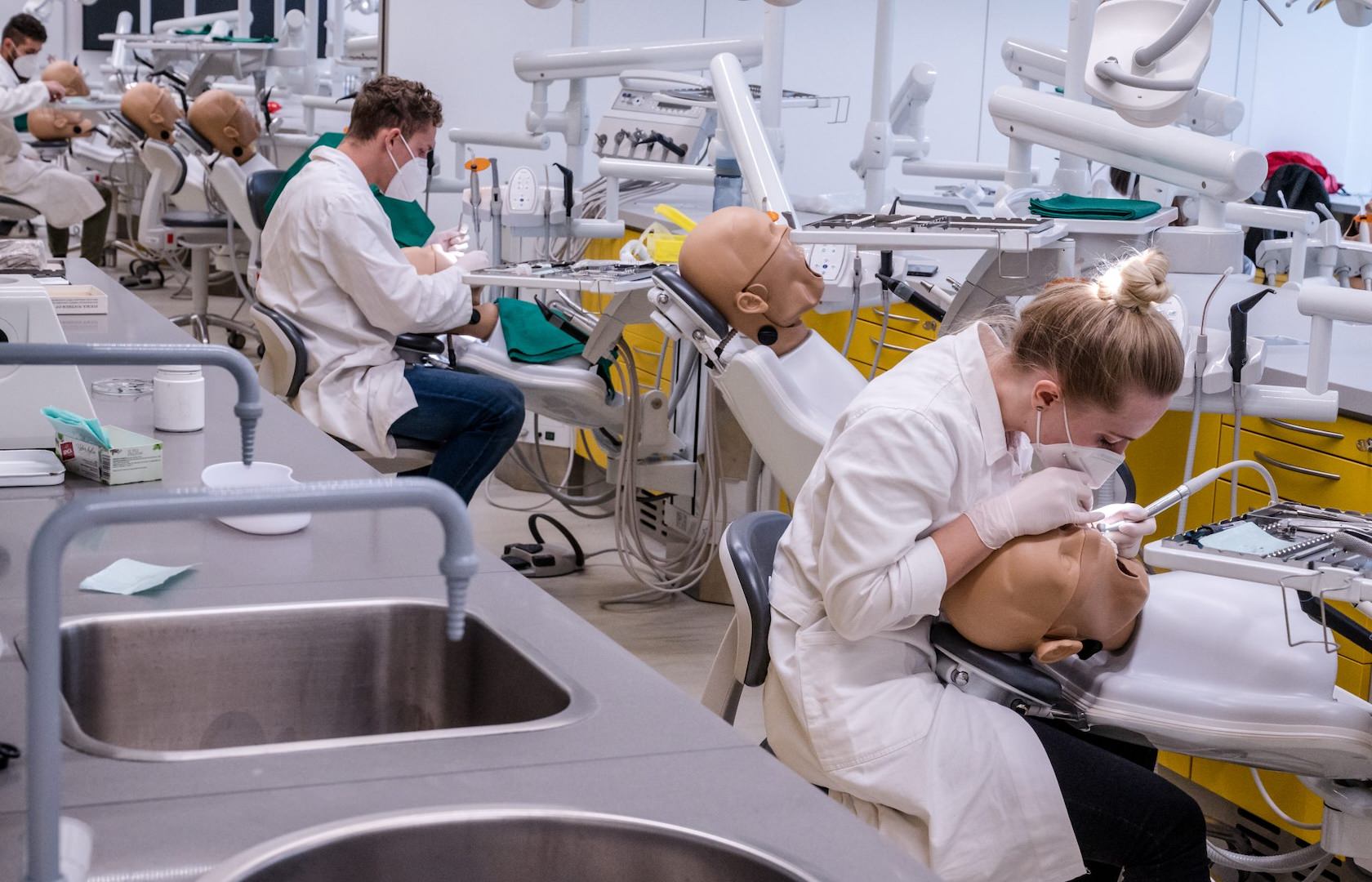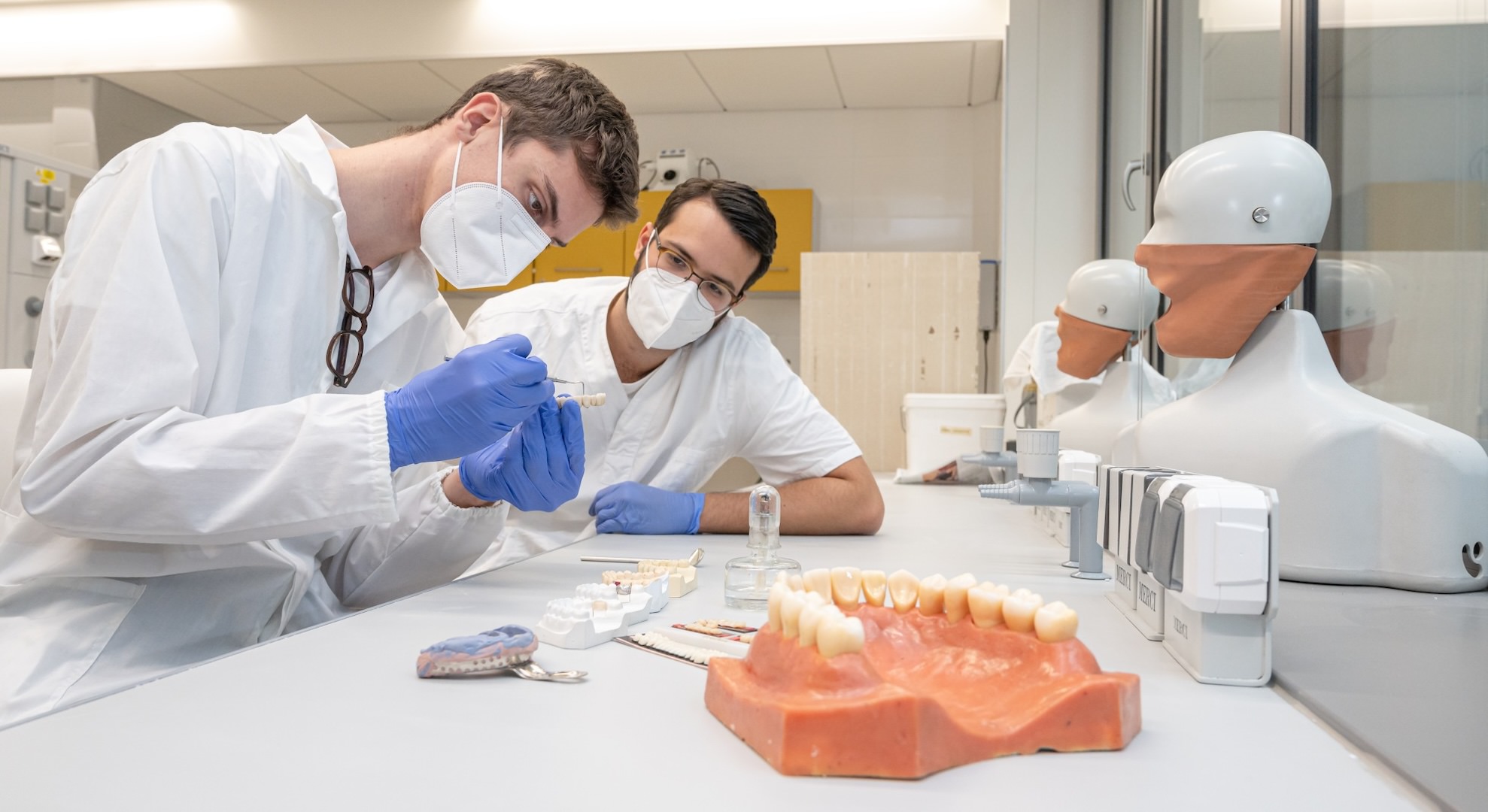
☝️ The most important facts in brief
- The planned duration of the degree programme is 10 semesters.
- After studying dentistry, you will be well trained in the field of dental, oral and maxillofacial medicine and can start your career as a dentist.
- A complete dental degree programme comprises a pre-clinical and a clinical part and concludes with the state examination.
- To gain admission to this degree programme, you need an excellent Abitur and often have to take additional admission tests.
- If you don't get a place to study dentistry in Germany, there are interesting opportunities to realise your dream of working as a dentist by studying in another country.
📖 Table of contents
The degree programme in dentistry prepares future dentists to take care of oral health. It combines the basics of medicine with specialised subjects in dentistry for the prevention and treatment of diseases and concludes with a state examination in accordance with the licensing regulations.
Are you interested in studying dentistry?
We will be happy to advise you free of charge about your options for studying human medicine and dentistry, and we can also advise you about studying medicine in another EU country, which is fully recognised in Germany.

Together for success - futuredoctor and studying medicine abroad
Would you like to Study medicine abroad and are looking for the most suitable university for you and don't really know where to start looking for a suitable country and a good university? futuredoctor will be happy to support you!
Besides the Student advisory service In addition to selecting the university and accompanying you to the desired on-site appointments, futuredoctor also offers support during the application process and preparation for possible aptitude tests, as well as orientation at the place of study - including the search for accommodation! Get your application quickly and easily free info pack!
Is dentistry the right degree programme for you?
The learning curve on the way to becoming a dentist is high. You should therefore have no problem investing a lot of time and energy in learning if you want to study dentistry. As you will have to deal sensitively with people both later as a dentist and during your studies, the corresponding social skills are also required.
While there are also areas of work in human medicine for people with comparatively gross motor skills, there are hardly any in dentistry. You therefore need talent and skill to learn the skills required to maintain healthy teeth and to be able to perform them with good results later on.
Admission requirements for studying dentistry
A general or subject-restricted higher education entrance qualification is usually a prerequisite for admission to study dentistry. As this is a highly sought-after degree programme, not all applicants can be offered a place at German universities. Due to the numerus clausus (NC), a very good A-level grade is required.
However, the grade is not the only aspect by which universities select their students. Additional qualifications such as a good score in the (fee-based) test for medical degree programmes (TMS) can improve the grade assessed in the admission procedure.
In addition, some of the places are allocated through the universities' internal selection procedures. The individual universities have different criteria that play a role in the allocation of study places. Great importance is often placed on dexterity and dexterity, as these skills are extremely important later in the profession as a dentist.
How the dental degree programme works
Dental students have to complete 10 semesters before the final examination. These are divided into two sections, "pre-clinical" and "clinical", each lasting 5 semesters. While the pre-clinical part of the course primarily covers the basic areas of knowledge, the clinical section in particular is characterised by many practical activities. We would now like to take a closer look at the two sections.
First study phase
The first two semesters of the dentistry degree programme consist of lectures and initial practical exercises. The first major examination, the pre-physical course, takes place after semester two. Before this, there are already a number of so-called testates, which are small intermediate examinations in the individual subjects. The subjects covered in the pre-clinical part include the following:
- Physics
- Biology
- Chemistry
- Macroscopic and microscopic anatomy
- General physiology and special physiology
- Biochemistry
- Molecular biology
The pre-clinical part of the programme ends after the fifth semester. In order to be admitted to the clinical part, you must pass the so-called Physikum. There you must demonstrate both your theoretical knowledge of the topics covered and show that you have acquired the necessary practical skills to continue your studies.
Second study phase
During the clinical phase, the student "dentists" are allowed to work on real patients, among other things. They are of course supported by dentists who have already completed their training and are active in teaching. These practical activities are excellent preparation for the time after graduation. In addition to working with patients, the following subjects are among those covered in the second half of the programme:
- Pathology
- Orthodontics
- Dental, oral and maxillofacial surgery
- Denture and tooth preservation dentistry
- Hygiene
- Medical microbiology
- Ear, nose and throat medicine
At the end of the clinical phase is the second state examination. If you pass this, your studies are complete and you can start working as a dentist.
State examination and licence to practise
According to the new Dental Licensing Regulations (zApprO), which have been in force since the winter semester 2021/22, the final examination is divided into an oral and a written part. In order to be admitted to this, you must have passed all intermediate examinations, as well as completed a one-month nursing service, first aid training and a clinical traineeship of at least 4 weeks. If you pass, you will then be authorised to work as a dentist.
Not every dentist has a doctorate
Once you have passed all the examinations for your dental degree, you can pursue a career as a dentist. A doctorate is not required for this, but can improve your salary prospects under certain circumstances. For this reason, many students work on their dissertation before their final examination. Alternatively, it is of course also possible to take up a corresponding position as a doctoral candidate after completing your studies and earn the title with a corresponding thesis.
Study dentistry abroad
Dental medicine degree programmes are in high demand in Germany. As many potential students apply for far too few places, the question quickly arises as to what you can do if you don't get admission to your dream degree programme.
In such a case, one option is to complete your dental training at a foreign university. If you are interested, you will find a list of universities abroad where prospective dentists can study in English or even German, as well as further information. As the difference to a degree course completed in Germany is not particularly great, it is possible to obtain a licence to practise as a dentist in Germany after studying abroad by submitting an appropriate application.
One of the best universities for studying dentistry abroad is the Masaryk University in Brno. Here are some impressions:
A lot of material in a short time - mastering the stress of studying
For dental students, who are often referred to as "dentists", studying can be very stressful at times. A large amount of material on many different topics has to be mastered in a short space of time.
Good time management is essential to successfully manage the stress of learning. Set priorities depending on the subject and create structured learning plans right from the start. It is equally important to plan regular breaks and make use of support services such as study groups or tutorials to deepen your existing knowledge and acquire new ones.
Various job profiles in dental medicine
There are many different professions in the field of dentistry. First and foremost, you will probably think of dentists, who take care of dental health and the diagnosis and treatment of dental and oral problems.
In addition to general dentistry, there are numerous other opportunities to gain a professional foothold after you have successfully completed the dentistry degree programme:
In orthodontics, misaligned teeth are corrected, while oral surgeons are dentists who have specialised in surgical procedures in the oral cavity through additional training. Dental hygienists and prophylaxis assistants, on the other hand, specialise in advising and supporting patients with regard to oral hygiene.
An important question: What salary can you expect?
A dentist's earnings depend heavily on the speciality in which they work. In this respect, it is not possible to provide generalised information here. In general, you can assume that the salary of dentists employed in a practice or dental clinic is around 3,500 to 4,500 euros per month. Professions that require additional knowledge and qualifications, such as orthodontics, offer a higher salary.
Self-employed dentists who treat their patients in their own practice have significantly higher earnings compared to employed dentists. This is on average between 8,000 and 10,000 euros per month, but can vary greatly depending on the type of practice and specialisation. You also need to bear in mind that self-employment involves considerable costs that need to be factored in.
Making sensible use of further training opportunities
After graduating, dental students have numerous opportunities for further training that should be utilised sensibly. Further training in specific areas such as implantology, aesthetic dentistry or periodontology makes it possible to develop a unique profile in practice and expand treatment options. In addition, postgraduate study programmes can strengthen scientific expertise or pave the way for teaching. Networks with colleagues and specialised seminars also ensure a continuous exchange of knowledge and contribute to professional development.
Alternatives to studying dentistry
There are alternatives for those who are interested in oral and dental health but do not want to or cannot follow the traditional route of studying dentistry.
Degrees in dental hygiene or dental technology offer practical work with patient contact without the need for a licence to practise dentistry. Furthermore, a degree in health sciences or biomedicine with a focus on oral health opens up exciting career paths in research and development. A Master's degree in healthcare management or similar specialisms also qualifies graduates for management and administrative roles in the healthcare sector, especially in dental facilities. These alternatives can lead to specialised and equally fulfilling career paths.
Starting shot
What are you waiting for? 🎉
Order your information package now, find out about studying medicine abroad and get started as a medical student!
